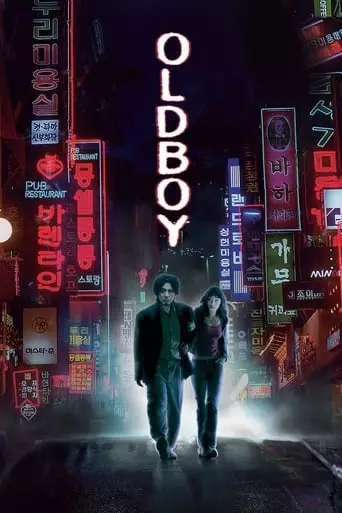
Oldboy (2003) Watch Online Free
With no clue how he came to be imprisoned, drugged and tortured for 15 years, a desperate businessman seeks revenge on his captors.
Oldboy (2003), directed by Park Chan-wook, is a South Korean neo-noir thriller that follows the harrowing journey of Oh Dae-su (Choi Min-sik), a man who is mysteriously imprisoned for 15 years in a small room without explanation. When he is finally released, he embarks on a quest to discover who is responsible for his captivity and why he was subjected to such a fate. As he investigates, he meets a young woman named Mi-do (Kang Hye-jung), and they form a complicated bond. The deeper Dae-su delves into the mystery, the more he uncovers about the cruel and intricate revenge plot that has been set in motion by Lee Woo-jin (Yoo Ji-tae), a man with a personal vendetta against him.
The film’s central twist is revealed when Dae-su discovers that Mi-do is, in fact, his own daughter. This shocking revelation stems from a vengeful plot orchestrated by Woo-jin, who had sought to ruin Dae-su’s life after an incident involving his sister years earlier. The film ends with Dae-su, now unable to speak due to self-inflicted harm, receiving hypnotic therapy to erase the painful memories of his past. However, the final moments leave viewers uncertain whether Dae-su will ever truly escape the trauma of his past.
Oldboy explores several deep and disturbing themes, including vengeance, imprisonment, and the cyclical nature of violence. The film is a study in the psychological and physical toll of revenge. The character of Oh Dae-su is trapped not only in a physical sense but also psychologically, as his obsession with revenge consumes him. The movie also explores the theme of voyeurism, as both Dae-su and Woo-jin are constantly observing each other, and Dae-su’s past actions (unintentionally exposing Woo-jin’s sister’s secret) set off a tragic chain of events.
The theme of incest is central to the plot, as the twisted nature of Woo-jin’s revenge is revealed through the shocking relationship between Dae-su and Mi-do. This theme, alongside the Oedipus-like narrative, is deeply unsettling and explores Freudian concepts of desire, guilt, and fate. The film’s violence, both physical and psychological, is stark and brutal, emphasizing the extremities of human suffering and the consequences of unchecked rage.
Oldboy had a profound impact on both South Korean cinema and the international film industry. It is widely regarded as one of the best films in the “Vengeance Trilogy” by Park Chan-wook, and it helped to establish Korean cinema as a major force in global filmmaking. The film’s intricate storytelling, shocking twists, and masterful direction earned it numerous accolades, including the Grand Prix at the 2004 Cannes Film Festival.
The movie’s impact is also seen in its influence on later works, both in terms of narrative complexity and visual style. Its raw depiction of violence and psychological torment has left a lasting mark on thriller and noir genres, and its bold exploration of taboo subjects has inspired discussions about the limits of storytelling and audience tolerance.
After watching Oldboy, you will likely feel a mixture of shock, awe, and discomfort. The film’s intense violence, both physical and emotional, leaves a lasting impact, and the final twist will leave you questioning the nature of justice, revenge, and the limits of human endurance. The movie’s exploration of the cyclical nature of violence and its psychological depth will likely provoke deep reflection on the consequences of actions and the inescapable nature of the past.
The ending is ambiguous, and while it offers some closure, it also leaves you with a sense of unease, as Dae-su’s fate is uncertain. You may feel disturbed by the film’s exploration of taboo subjects like incest, but also captivated by its storytelling and visual style. Ultimately, Oldboy is a film that challenges its audience, forcing them to confront uncomfortable truths about human nature and the complexities of revenge.
